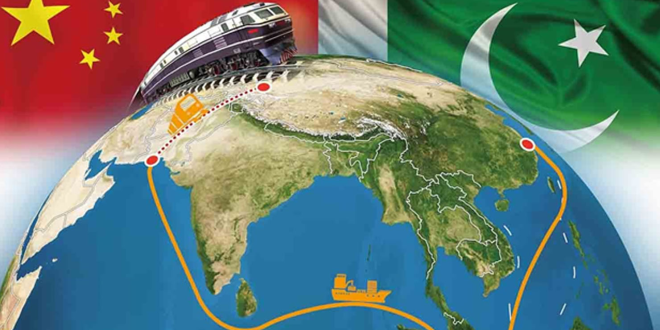KABUL — India has issued a sharp diplomatic warning against China and Pakistan’s move to extend the controversial China-Pakistan Economic Corridor (CPEC) into Afghanistan, calling the proposal “unacceptable” and a threat to regional stability.
Speaking in Parliament on Thursday, India’s Minister of State for External Affairs, Kirti Vardhan Singh, said New Delhi has formally protested the inclusion of CPEC in trilateral talks between China, Pakistan, and Afghanistan, held in Beijing on May 21. At that meeting, the three nations discussed expanding infrastructure and regional connectivity, a move India views as a strategic red line.
CPEC, the $60 billion flagship project of China’s Belt and Road Initiative (BRI), runs through Pakistan-administered Kashmir, a territory India claims in full. Singh reaffirmed that India has repeatedly objected to the project’s violation of its sovereignty and warned that involving a third country — such as Afghanistan — only compounds the illegality.
“Any proposed participation of third countries or expansion of the so-called CPEC projects to third countries is unacceptable,” Singh said, adding that the government is “keeping a constant watch on all developments” that impact Indian interests.
For the West, the expansion of CPEC into Afghanistan marks a new phase in China’s strategic outreach, one that could dramatically reshape Eurasian trade corridors, deepen China’s influence in Taliban-ruled Afghanistan, and further marginalize Western-backed efforts to promote regional stability through democratic norms and transparent development.
Analysts warn that CPEC’s growth into Afghanistan may undermine India’s regional infrastructure ambitions, including the Iran–India–Afghanistan Chabahar Port route, while also heightening fears of terrorism, military entrenchment, and authoritarian leverage by Beijing in South and Central Asia.
The Indian government’s strong response reflects growing anxiety over Beijing’s tightening grip on regional logistics networks and its ability to circumvent Western sanctions regimes through strategic partnerships with unstable regimes.
India’s objections come at a time when the Taliban government in Kabul is increasingly aligning with China and Pakistan, offering Beijing access to Afghanistan’s vast untapped mineral wealth in exchange for investment and diplomatic recognition. By embedding Afghanistan into CPEC, China could further consolidate a Beijing-Islamabad-Kabul axis that tilts the region away from Western influence.
This is the latest flashpoint in the broader struggle over control of trade routes, sovereignty, and influence in a region critical to global counterterrorism efforts, energy security, and the future of China’s Belt and Road vision.
India’s message to the world is clear: expanding CPEC into Afghanistan is not just a regional issue — it’s a geopolitical alarm bell.
 Afghanistan Times
Afghanistan Times




